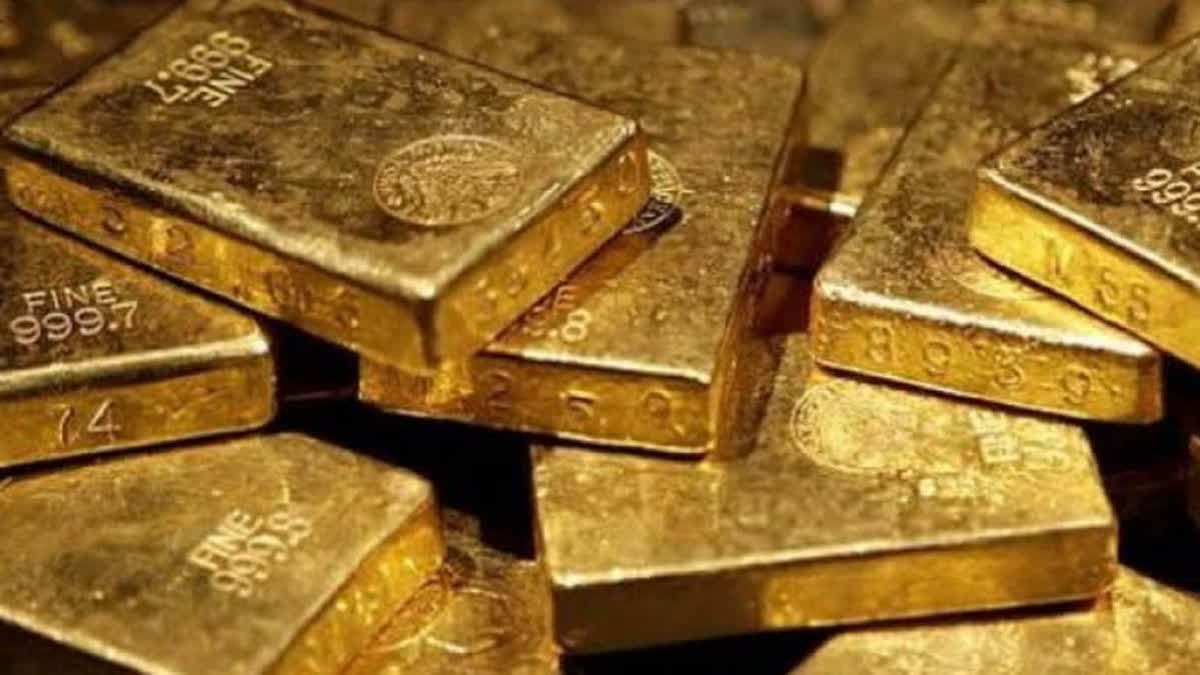New Delhi: Gold demand in India, the world's second-largest consumer of the yellow metal, rose 10 per cent to 210.2 tonnes during the third quarter of this calendar year, aided by softening of gold prices and festive demand, according to the World Gold Council (WGC).
Speaking to PTI, WGC India Regional CEO Somasundaram PR said gold prices softened a bit during the last quarter but now they have started inching up. Prices will play a critical role during the Dhanteras festival and wedding season in the next two months.
Trade feedback is that consumers have accepted the Rs 60,000 per ten-gram price point, so a downward correction could trigger a significant jump in demand. Dhanteras is considered the most auspicious day in the Hindu calendar for buying items ranging from precious metals to utensils, to other valuables.
Jewellery demand rose 7 per cent in the quarter under review to 155.7 tonnes from 146.2 tonnes, while that of bar and coin demand increased by 20 per cent to 54.5 tonnes from 45.4 tonnes, it said.
In fact, bar and coin investment in India reached the highest for a third quarter since 2015. India's gold imports rose to 220 tonnes during Q3 of this year, from 184.5 tonnes in the year-ago period, it added.
During Q3, the WGC report said the correction in the local gold price from record highs, combined with the festive season in south India, were the two major drivers of growth in jewellery demand. .
After a fairly soft start to the quarter in part due to Adhik Maas, which is viewed as inauspicious for making new purchases August and September witnessed a pick-up in activity thanks to festivals such as Onam and Varalakshmi.
Festive purchases helped South India outperform other regions. By contrast, North India was the weakest and saw a year-on-year decline, partly reflecting a weaker rural sector and a relative lack of major festivals during the quarter. Lower-carat (18K and 14K) jewellery has gained popularity amid elevated gold prices and has benefited from retailers promoting these higher-margin products.
On a relative basis, large retailers have continued to perform well, reaping rewards from their aggressive marketing campaigns, the report said. "In the last quarter, as prices softened a bit, more people were waiting to buy gold and bought more bars and coins instead of jewellery. Therefore there was a 20 per cent jump in demand for bars and coins in Q3," Somasundaram said.
Price correction was a major factor that triggered the latent demand which the WGC believes continues to be strongly underpinned by strong positive economic sentiment mixed with uncertainties arising from a variety of factors such as fear of inflation, below-normal monsoon and global developments, he said.
According to WGC, Q4 will get the usual seasonal boost due to festivals and wedding purchases, however, any sharp price rise could delay the release of pent-up demand following a relatively weak first-half demand.
"There is latent demand but prices are stiff... If prices go up, there will be a general caution in buying. People may buy more bars and coins," Somasundaram said. He also said Q4 gold demand is expected to be in the same range as in Q3, slightly better if there is no further rise in prices.
With the first nine months' demand at 481.2 tonnes, the full-year 2023 gold demand would be in the range of 700-750 tonnes, marginally lower than 774 tonnes demand in 2022, he said.
However, the country's 2023 gold imports are expected to exceed last year's level of 650.7 tonnes. India imported 563 tonnes of yellow metal during the January-September period of this year, he added.
Also read-



